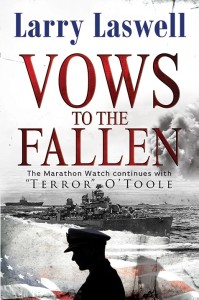Title: The Summer of France
Author: Paulita Kincer
Publisher: Oblique Presse
Publication Date: July 1, 2013
Format: Paperback / eBook / PDF
Pages: 255
ISBN: 978-1300257332
Genre: Women’s Fiction / Travel / Adventure
Buy The Book:
Amazon: http://www.amazon.com/Summer-France-Paulita-Kincer/dp/1300257334/ref=tmm_pap_swatch_0?_encoding=UTF8&sr=1-1&qid=1437011077
Barnes & Noble: http://www.barnesandnoble.com/w/the-summer-of-france-paulita-kincer/1113110596?ean=9781300257332
Goodreads: https://www.goodreads.com/book/show/16089591-the-summer-of-france?ac=1
Discuss this book in our PUYB Virtual Book Club at Goodreads by clicking HERE
Book Description:
When
Fia Jennings loses her job at the local newspaper, she thinks she’ll
have the chance to bond with her teenage twins. As she realizes she may
be too late to create the perfect family, she’s saved by a phone call
from her great Uncle Martin who operates a bed and breakfast in
Provence. Uncle Martin wants Fia to venture to France to run the B&B
so he and his wife Lucie can travel. He doesn’t tell Fia about the
secret he hid in the house when he married Lucie after fighting in World
War II, and he doesn’t mention the people who are tapping his phone and
following him, hoping to find the secret.
Book Excerpt:
Fia
The quiet of
the house mocked me as I rummaged
through the Sunday paper looking for the travel pages. I ignored the
meticulously folded “Help Wanted” section of the newspaper and the yellow
highlighter that my husband had placed on the counter to remind me that I’d
been unemployed for two months and needed to find a job – soon. The ring of the
kitchen phone saved me from isolation and from a job search as the thick accent
of my aunt came across the crackly line inviting me to move to France.
After a few sentences in the language that Aunt Lucie
considered English, she handed the phone to my great uncle Martin, and I heard
his booming voice.
“Fia?” he called as if using a bullhorn rather than a
telephone. Uncle Martin, the baby of my
grandfather’s family, ventured overseas as a teenager to fight in World War II,
found a French wife, and stayed.
I’d never traveled to France to visit him, but Uncle
Martin always came home for the family reunion at the beginning of summer.
Hearing his voice on the phone, I glanced at the wall
calendar, assuring myself it was late June and Uncle Martin’s visit had ended
nearly two weeks before.
“Uncle Martin! What a surprise. How’s life in France?”
I asked in a quiet voice meant to encourage him to lower his volume.
Uncle Martin continued to bellow. “Look, Fia, let me
get right to the point.” He hadn’t lost his American directness. “Lucie and I are tired.
We
need a break, maybe a permanent break.”
“What?” I gasped my voice growing louder to match his.
“You and Aunt Lucie are…but you can’t be…you can’t break up?”
“No,” I heard his old man grunt across the phone
lines. It sounded as if he said something like “Zut!”
“Listen. Don’t jump to conclusions,” he chastised me.
“We’re tired of working so hard. We’re old and it doesn’t look like any of
Lucie’s relatives are gonna step forward and take over. That’s why I’m calling.
Will you and Grayson come over and run this place?”
“This place” is what Uncle Martin always called the
eight-room bed and breakfast that he and Aunt Lucie ran in a small village in
Provence. Lucie’s family had owned the home for generations, wringing olive oil
from the trees and wine from the grape vines. But as big cities and ample
education called, the younger branches of the family moved away. When Uncle Martin
and Aunt Lucie found themselves the only ones living in the big, old house
during the 1970s, they decided to capitalize on a tourism boom and turned the
house into a bed and breakfast. They encouraged American and English tourists
to stay, and, after A Year in Provence came
out in 1990, their business exploded with people who wanted to see the land
that Peter Mayle described.
“We thought you could take over,” Uncle Martin blared,
“obviously, since you’re not working.”
Thanks, Uncle Martin, for reminding me again of my
current jobless status. When a huge
conglomerate bought our local newspaper and combined resources with the paper
in the next town, I became superfluous. So, after years of writing about home
design, I sat staring at my own shoddy decorating. I tried to look on the
bright side. Now I actually had time to try some of those design tips. To add
depth to the alcove next to the fireplace, I painted it a darker color. Next I
added crown molding around the opening from the living room to the dining room.
So far, mostly, I spent my time trying to stay
positive so an amazing job would find me,
and I watched cable TV shows about happy families. Who knew The Waltons was on five times a day? Mix
that with the Duggars, that family with 19 kids on TLC, and my days just flew
past. I slowly realized that driving my kids to sporting events and
extracurricular lessons did not count as quality time. Inspired by those TV
families, I amplified my efforts to pull my 14-year-old twins closer. When they
ambled home from school, I’d suggest some family activities. “Let’s draw a
hopscotch on the driveway!” I’d say. Their eyes rolled wildly in their heads
like horses about to bolt. “How about making homemade bread together? We can
all take turns kneading? Or maybe an old fashioned whiffle ball game in the
backyard?”
They suggested we go out for pizza or visit a sporting
goods store for new soccer cleats or swim goggles. I declined, picturing the
credit card bills I juggled now that I didn’t have an income.
Bills. Ooh! I couldn’t see Uncle Martin’s invitation
to France winning approval from my husband, Grayson, who had just been
complaining about money.
As a two-income family, we had paid bills on time and
planned our next extravagant purchase. Of course, my pragmatic husband, the
almost accountant, never used credit cards. But with my own income, I wasn’t
that concerned about using credit cards. When I started to run a balance, I
made the minimum payment every month. No need to inform Grayson who would’ve
disapproved of my indulgences. Not that I bought things for myself. Nothing but
the best for our kids with their private swim clubs, technologically engineered
swimsuits, travel soccer teams, and state-of-the-art skateboards. I hadn’t
bothered to save for an emergency but spent and charged as I went along until
the bottom dropped out of journalism.
“Uncle Martin, you know we’ve always dreamed of
visiting you and Aunt Lucie, but without a job now, I just… I can’t see it
working financially.”
“I’m not talking about a visit,” his voice grew
agitated. “I’m talking about you moving in here and running the bed and
breakfast. I’d send the plane fare to get you here. You, Grayson and the
twins.”
I sat stunned for a moment, so Uncle Martin repeated
himself.
“I’ll send you the tickets. I’ll just buy them online
for you, Grayson and the twins. Both of them.”
My kids were always “the twins,” as if sharing a womb
14 years earlier made them one entity for the rest of their lives.
“Whoa. That is heavy stuff,” I slid onto the swiveling
bar stool. “We can’t just move. Leave our house, school, Grayson’s job.”
Even as I said it, I felt hope rising in my chest.
Yes! I waited for a job to come to me and it did. A spectacular opportunity. I
pictured myself in a flowing skirt and low-heeled, leather sandals walking
along a dusty road away from the market that would line the village streets.
I’d carry a canvas bag with French bread jutting from the top as I headed home,
the pungent fragrance of a cheese wafting from the bottom of the bag. Although
I’d never been to France, I watched any sunny movie set in Europe. The women
always wore skirts and had leisure time to linger along the roadside, smelling
the lavender.
I heard the front door slam and my husband’s heavy
footfall in his casual Sunday topsiders as he came in from the office. Even on
a Sunday, the work at Grayson’s accounting firm was plentiful.
I turned my back on my approaching husband and said
into the phone, “When are you thinking, Uncle Martin?”
“I’m thinking… NOW. Last week,” Uncle Martin’s voice
rose again. I cupped my hand over the phone to try to smother the sound of his
bellowing. “I’m tired of dealing with these snippy tourists. I want to roam
around the world and give other innkeepers a hard time.”
“You make the job sound so enticing,” I tried to laugh
lightly so Grayson, who was drawing nearer, wouldn’t realize the importance of
this conversation. The idea began to form in the back of my mind: We could make
this happen — with a little cooperation. I shot a hopeful glance toward
Grayson as he walked in the room. I quickly raised my eyebrows twice, which I
thought should give him an indication that good news was on the phone. He
looked grim and tired – the horizontal line between his own eyebrows resembled
a recently plowed furrow.
“Look, I’ll have to call you back later,” I hissed
into the phone and punched the button to hang up as Grayson threw his aluminum
briefcase on the island. His look turned from grim to suspicious.
“Uncle Martin,” I said with a blasé wave toward the
phone. “He has a business proposal…”
I tried to sound nonchalant, but I guess my eagerness
showed because Grayson dropped his head on top of his briefcase for just a
minute before he stepped toward the cabinet over the refrigerator. He opened
the door and pulled down a bottle of Scotch.
This conversation might prove more difficult than I’d
anticipated.



